'Loneliness maps' could be used to target people at risk
- Published
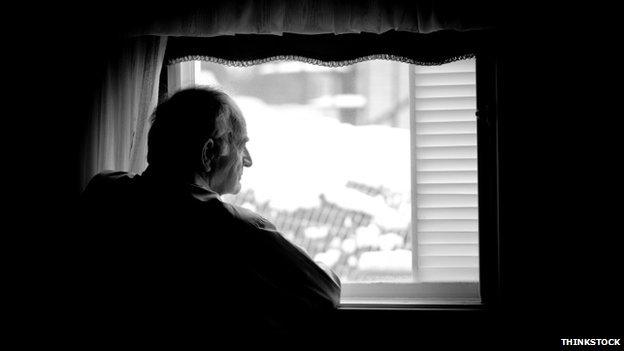
Studies have suggested loneliness contributes to health problems and affects mortality
The increasing problem of loneliness should be tackled by creating maps to show where older people are more likely to be at risk, according to a report.
The "loneliness maps" could be used to target limited resources at the people and places that need them most.
The Hidden Citizens report, published by the Campaign to End Loneliness, said this has already been done successfully in Gloucestershire and Essex.
Studies have suggested loneliness contributes to health problems.
Laura Alcock-Ferguson, director for the Campaign to End Loneliness, said: "If local councils and services do not act now to find the people experiencing severe loneliness, we are likely to see the consequences in our hospitals and social care services.
"Loneliness and isolation in older age is a serious public health issue and increases the risk of conditions including dementia, high blood pressure and depression."
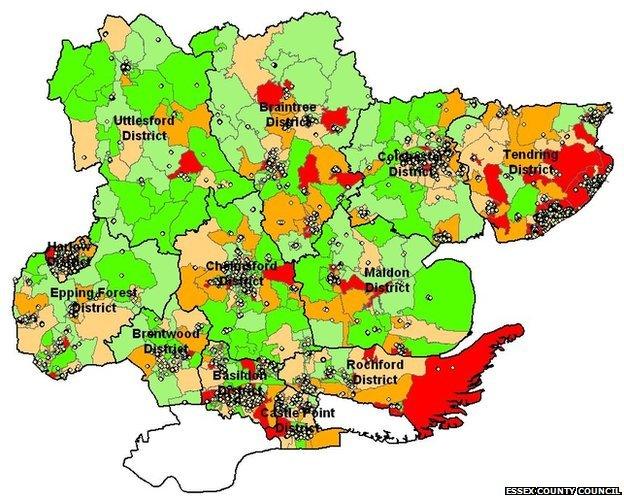
Essex County Council created a map showing households potentially vulnerable to loneliness and isolation
The report, published in conjunction with the University of Kent, describes how Gloucestershire County Council adapted a model used by Essex County Council when creating its own loneliness map.
The map was created using existing data about people living in the county.
Factors such as low income, living in a household with one occupant and not owning a car were taken into consideration when assessing the potential for loneliness.
Neil Dixon, the council's joint strategic needs analysis manager, said: "The map we've adapted from a model by Essex County Council means that we can work out how many people could be lonely and where those people need us most."

'Optimistic' about the future
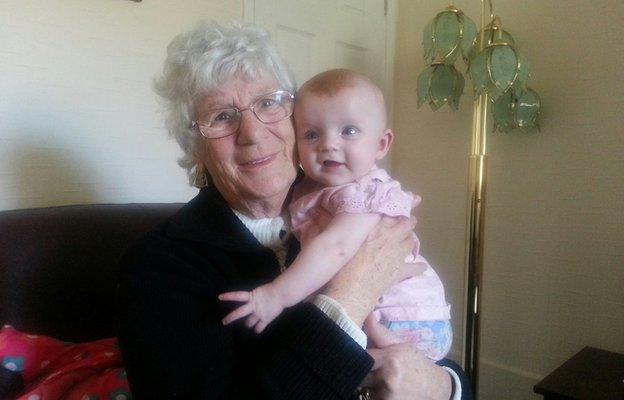
Brenda Dacres, shown here with her granddaughter, has stopped taking anti-depressants
Brenda Dacres, 77, from Nottingham, was experiencing loneliness and taking anti-depressants until her GP referred her to an organisation that helps people make new friendships and social connections.
She was living by herself and hardly saw her family before finding the service.
"I wasn't bothered whether I lived or died," she said.
"Sometimes I'd put my coat on, get to the front door but couldn't go any further."
Since being referred she has quit smoking, stopped taking anti-depressants and says she feels "optimistic" about the future.
- Published13 October 2014
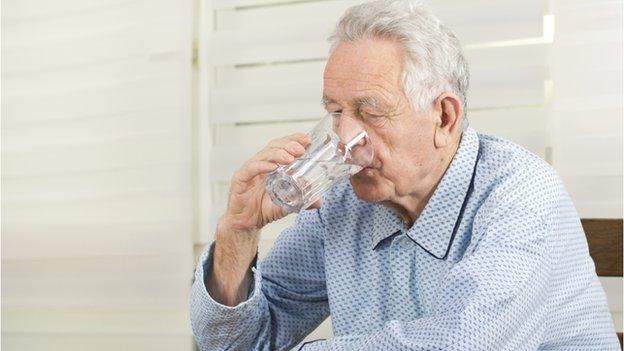
- Published2 April 2014
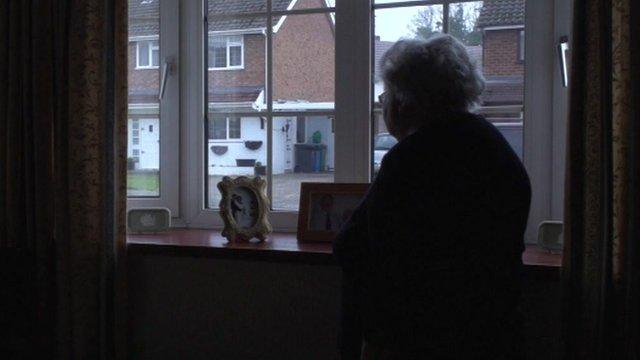
- Published18 October 2013
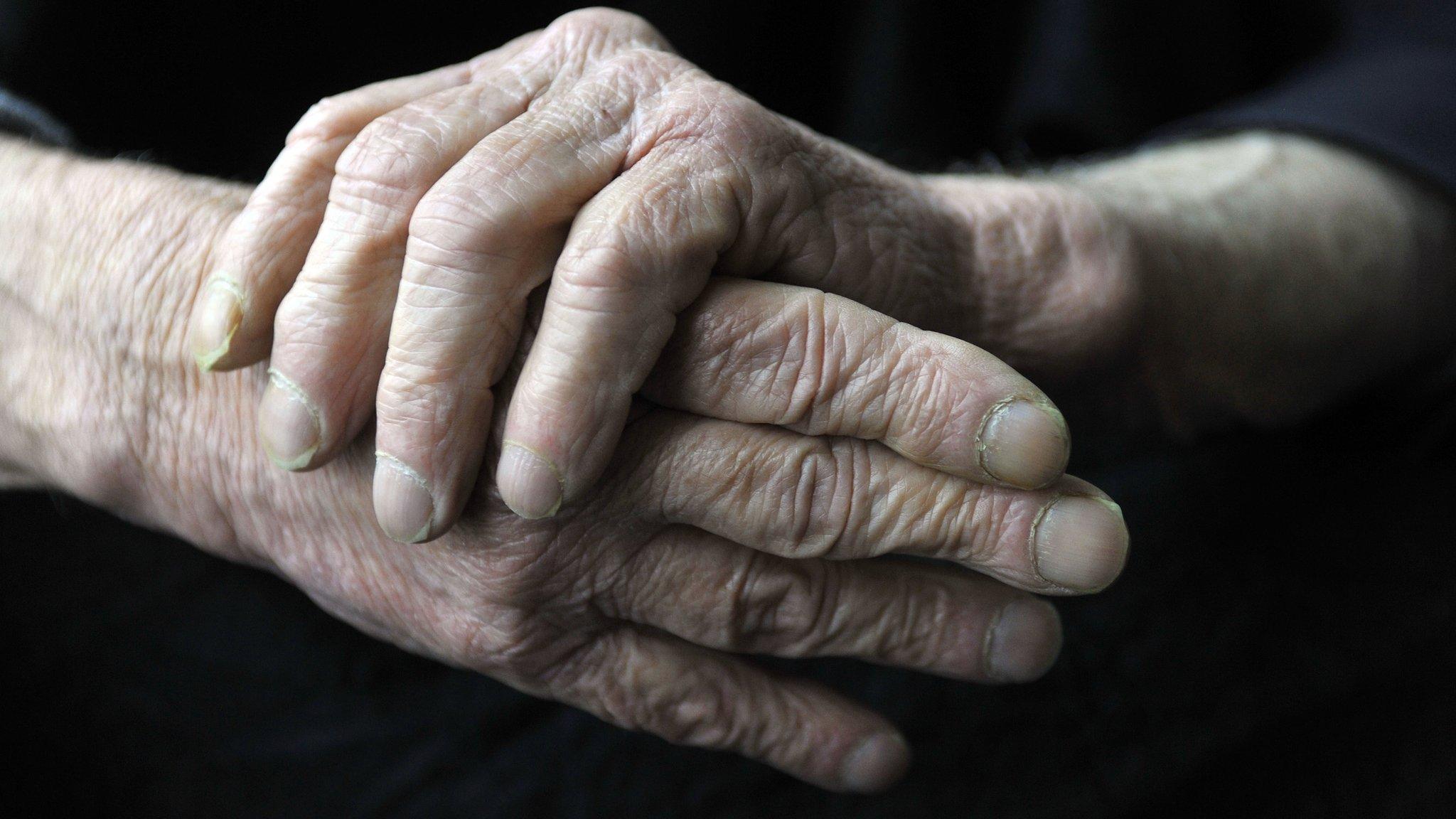
- Published23 February 2013
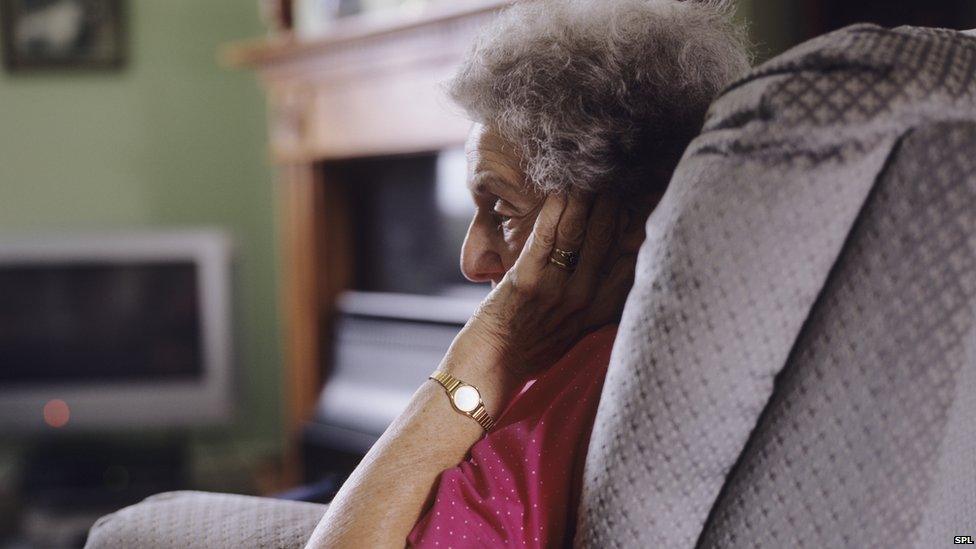
- Published9 July 2012
